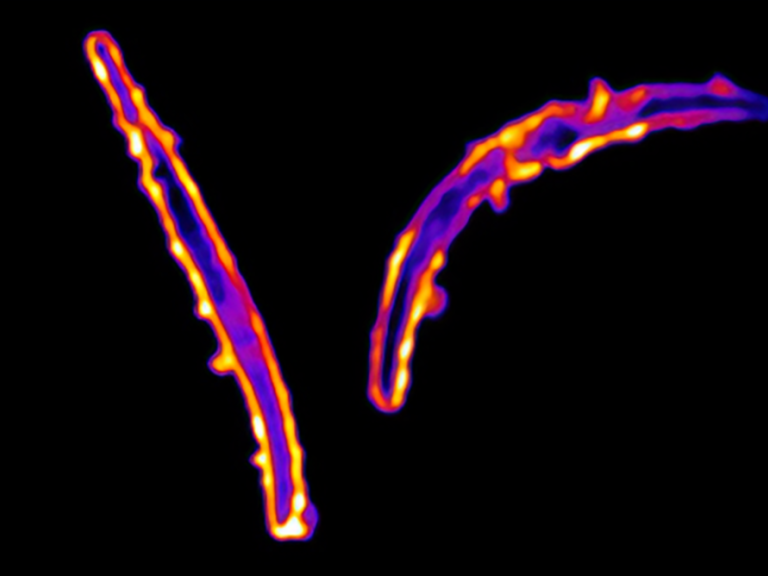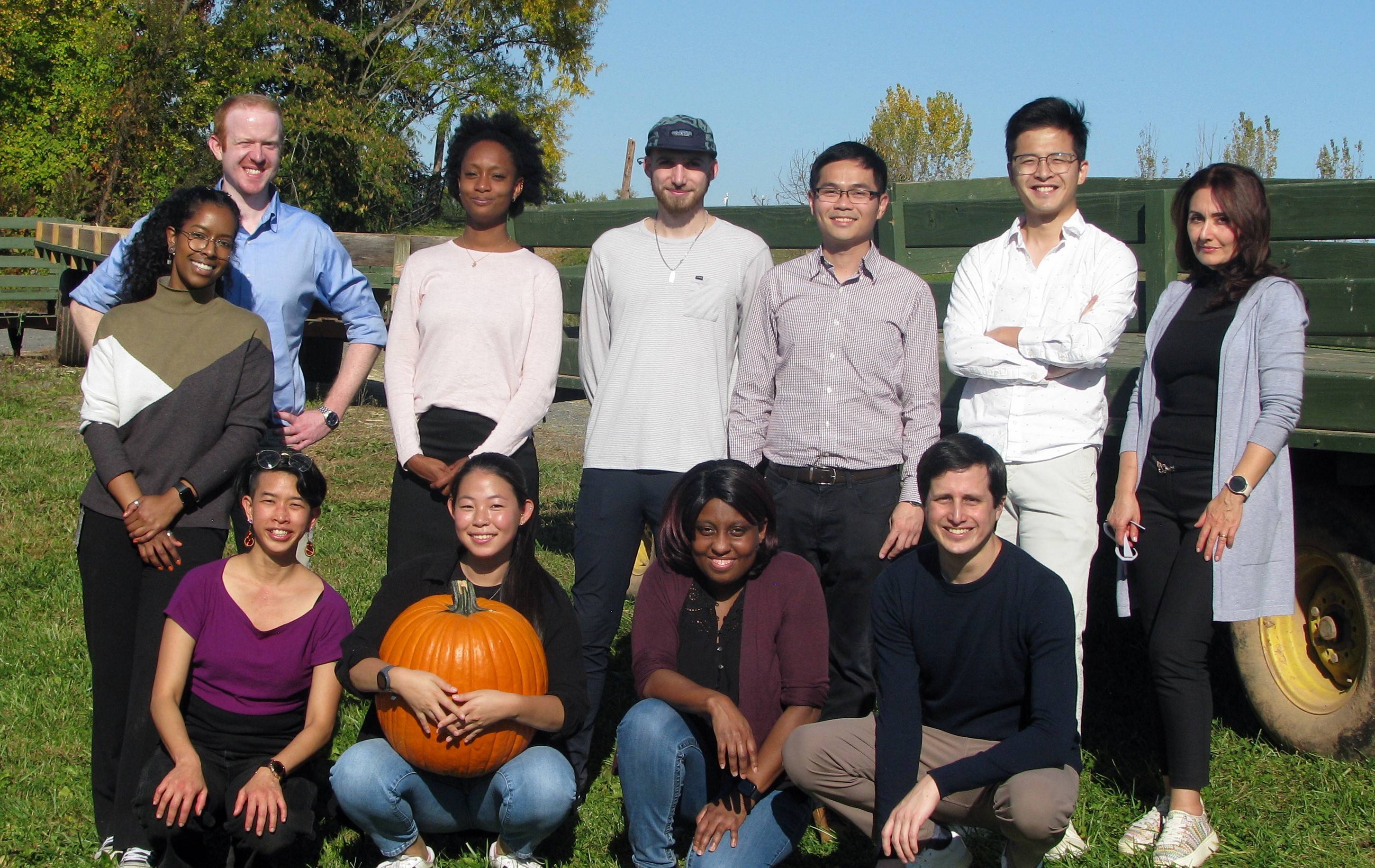Antibody Biology Unit
Joshua Tan, Ph.D.
Chief, Antibody Biology Unit
Earl Stadtman Investigator

Highlight

NIH Researchers Discover Novel Class of Anti-Malaria Antibodies
January 3, 2025
New antibodies that bind to a previously untargeted portion of the malaria parasite could lead to new monoclonal antibody treatments and vaccines for malaria.
Major Areas of Research
- Development of monoclonal antibody therapeutics against pathogens
- Characterization of human antibody response to infectious pathogens
- Biology of antibody response to influenza, other viruses, Plasmodium falciparum, and Mycobacterium tuberculosis
Program Description
Human monoclonal antibodies are emerging as powerful tools to combat infectious disease. At the Antibody Biology Unit (ABU), we aim to use cutting-edge technology to study B cells at the single-cell level and to identify and characterize human monoclonal antibodies against a range of pathogens. The Unit currently focuses on diseases with substantial burden globally or in the United States.
ABU has two main objectives:
- Investigate the use of monoclonal antibodies for the prevention of infection and as tools for immunogen design: An array of tools, including the Berkeley Lights Beacon and Carterra LSA, will be used for high-throughput antibody identification and characterization. Monoclonal antibodies that are isolated will be screened in in vitro and in vivo assays to determine their potency in preventing infection. Their affinity for their targets will be measured using biophysical assays. In collaboration with structural biologists, we will identify the specific epitopes targeted by the most potent antibodies and develop these sites as novel immunogens. The most potent antibodies will also be considered as candidates to prevent infection in early-phase clinical trials.
- Study basic antibody biology: The sequences of monoclonal antibodies isolated from an immunized or naturally infected individual provide a high-resolution portrait of the antibody response to a given pathogen. Information revealed includes the predominant antibody isotype that is generated, the degree of somatic mutation and affinity maturation required for the development of a potent neutralizing response, and the preferential usage of specific VH genes to mount a response against a given antigen.
Biography
Education
Ph.D., University of Oxford, England
Dr. Tan received his Ph.D. from the University of Oxford, England. His Ph.D. work focused on the identification of unusual LAIR1-containing human monoclonal antibodies targeting antigens on Plasmodium falciparum-infected erythrocytes. After his Ph.D., he was awarded a Sir Henry Wellcome Postdoctoral Fellowship to continue his work on human monoclonal antibodies against human-infecting pathogens. He joined the Laboratory of Immunogenetics as an investigator in 2020.
Selected Publications
Dacon C, Moskovitz R, Swearingen K, Da Silva Pereira L, Flores-Garcia Y, Aleshnick M, Kanatani S, Flynn B, Molina-Cruz A, Wollenberg K, Traver M, Kirtley P, Purser L, Dillon M, Bonilla B, Franco A, Petros S, Kritzberg J, Tucker C, Paez GG, Gupta P, Shears MJ, Pazzi J, Edgar JM, Teng AA, Belmonte A, Oda K, Doumbo S, Krymskaya L, Skinner J, Li S, Ghosal S, Kayentao K, Ongoiba A, Vaughan A, Campo JJ, Traore B, Barillas-Mury C, Wijayalath W, Idris A, Crompton PD, Sinnis P, Wilder BK, Zavala F, Seder RA, Wilson IA, Tan J. Protective antibodies target cryptic epitope unmasked by cleavage of malaria sporozoite protein. Science. 2025 Jan 3;387(6729):eadr0510.
Wang LT, Cooper AJR, Farrell B, Miura K, Diouf A, Müller-Sienerth N, Crosnier C, Purser L, Kirtley PJ, Maciuszek M, Barrett JR, McHugh K, Ogwang R, Tucker C, Li S, Doumbo S, Doumtabe D, Pyo CW, Skinner J, Nielsen CM, Silk SE, Kayentao K, Ongoiba A, Zhao M, Nguyen DC, Lee FE, Minassian AM, Geraghty DE, Traore B, Seder RA, Wilder BK, Crompton PD, Wright GJ, Long CA, Draper SJ, Higgins MK, Tan J. Natural malaria infection elicits rare but potent neutralizing antibodies to the blood-stage antigen RH5. Cell. 2024 Sep 5;187(18):4981-4995.e14.
Dacon C, Peng L, Lin TH, Tucker C, Lee CD, Cong Y, Wang L, Purser L, Cooper AJR, Williams JK, Pyo CW, Yuan M, Kosik I, Hu Z, Zhao M, Mohan D, Peterson M, Skinner J, Dixit S, Kollins E, Huzella L, Perry D, Byrum R, Lembirik S, Murphy M, Zhang Y, Yang ES, Chen M, Leung K, Weinberg RS, Pegu A, Geraghty DE, Davidson E, Doranz BJ, Douagi I, Moir S, Yewdell JW, Schmaljohn C, Crompton PD, Mascola JR, Holbrook MR, Nemazee D, Wilson IA, Tan J. Rare, convergent antibodies targeting the stem helix broadly neutralize diverse betacoronaviruses. Cell Host Microbe. 2023 Jun 14;31(6):1071-1072.
Dacon C, Tucker C, Peng L, Lee CD, Lin TH, Yuan M, Cong Y, Wang L, Purser L, Williams JK, Pyo CW, Kosik I, Hu Z, Zhao M, Mohan D, Cooper AJR, Peterson M, Skinner J, Dixit S, Kollins E, Huzella L, Perry D, Byrum R, Lembirik S, Drawbaugh D, Eaton B, Zhang Y, Yang ES, Chen M, Leung K, Weinberg RS, Pegu A, Geraghty DE, Davidson E, Douagi I, Moir S, Yewdell JW, Schmaljohn C, Crompton PD, Holbrook MR, Nemazee D, Mascola JR, Wilson IA, Tan J. Broadly neutralizing antibodies target the coronavirus fusion peptide. Science. 2022 Jul 12:eabq3773.
Cho H, Gonzales-Wartz KK, Huang D, Yuan M, Peterson M, Liang J, Beutler N, Torres JL, Cong Y, Postnikova E, Bangaru S, Talana CA, Shi W, Yang ES, Zhang Y, Leung K, Wang L, Peng L, Skinner J, Li S, Wu NC, Liu H, Dacon C, Moyer T, Cohen M, Zhao M, Lee FE, Weinberg RS, Douagi I, Gross R, Schmaljohn C, Pegu A, Mascola JR, Holbrook M, Nemazee D, Rogers TF, Ward AB, Wilson IA, Crompton PD, Tan J. Bispecific antibodies targeting distinct regions of the spike protein potently neutralize SARS-CoV-2 variants of concern. Sci Transl Med. 2021 Oct 20;13(616):eabj5413.
Tan J, Pieper K, Piccoli L, Abdi A, Perez MF, Geiger R, Tully CM, Jarrossay D, Maina Ndungu F, Wambua J, Bejon P, Fregni CS, Fernandez-Rodriguez B, Barbieri S, Bianchi S, Marsh K, Thathy V, Corti D, Sallusto F, Bull P, Lanzavecchia A. A LAIR1 insertion generates broadly reactive antibodies against malaria variant antigens. Nature. 2016 Jan 7;529(7584):105-109.
Research Group
ABU aims to study antibody responses to infectious pathogens at the monoclonal level. Major goals: 1) develop new antibody therapeutics or prophylactics to combat infectious disease, 2) study antibody responses to immunization and infection at high resolution, 3) investigate the use of monoclonal antibodies as tools for immunogen design.


